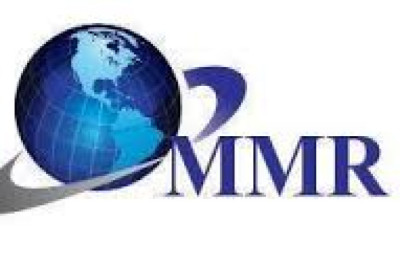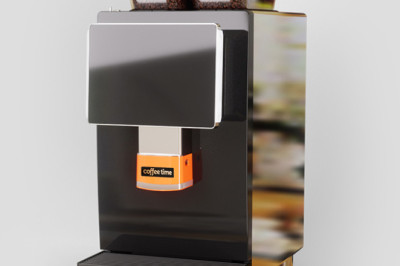views
In today's digital age, data is king. From personal photos and videos to crucial business documents, the need to store, access, and protect data has never been more critical. This is where Network Attached Storage (NAS) comes in—an innovative solution that meets the growing demands of data management. But what exactly is NAS storage, and how can it benefit you? In this blog post, we'll explore various NAS storage solutions, their features, advantages, and practical applications to help you find the perfect fit for your data needs.
Understanding NAS Storage
NAS storage is a specialized device connected to a network that allows data to be stored and retrieved from a centralized location. Unlike traditional storage devices, a NAS system offers advanced features like data redundancy, remote access, and scalability. This makes it an ideal choice for both personal and business use.
Why Choose NAS Storage?
Investing in NAS storage offers several key benefits. First and foremost is data security. NAS systems often come with built-in redundancy features, such as RAID configurations, to ensure data protection. Another advantage is accessibility. With NAS, you can access your data from virtually anywhere, making it incredibly convenient for remote work or personal use. Lastly, NAS storage solutions are highly scalable, allowing you to expand your storage capacity as your data needs grow.
Key Features of NAS Storage Solutions
When choosing a NAS storage system, several key features should be considered. Look for devices that offer multiple drive bays for easy scalability. Ensure the NAS system supports various RAID levels for data redundancy. Additionally, opt for NAS solutions that provide robust security features like encryption and user access controls. Compatibility with different operating systems is another essential factor to consider.
Types of NAS Storage Solutions
There are several types of NAS storage solutions available, each designed to meet specific needs. Entry-level NAS devices are perfect for home users and small businesses. These systems are affordable yet offer essential features like remote access and data backup. On the other hand, enterprise NAS solutions are designed for large organizations. They offer advanced features like high-speed data transfer, extensive storage capacity, and enhanced security.
Setting Up Your NAS Storage System
Setting up a NAS storage system might seem daunting, but it's relatively straightforward. Start by choosing the right NAS device that fits your needs. Next, install the hard drives and connect the device to your network. Follow the manufacturer's instructions to configure the device and set up user accounts. Lastly, ensure your NAS system is secure by enabling encryption and setting strong passwords.
Optimizing NAS Storage Performance
To get the most out of your NAS storage system, it's essential to optimize its performance. Regularly update the firmware to benefit from the latest features and security patches. Use high-quality hard drives specifically designed for NAS to ensure reliability and longevity. Additionally, organize your data efficiently to make it easier to access and manage.
Common Uses of NAS Storage
NAS storage solutions are versatile and can be used for various applications. One of the most common uses is data backup. NAS systems provide a reliable way to back up important files, ensuring you never lose crucial data. Another popular use is media streaming. With NAS, you can store and stream your favorite movies, music, and photos to any device on your network. Businesses can benefit from NAS by using it for file sharing and collaboration, making it easier for employees to access and work on documents from different locations.
NAS Storage for Home Users
For home users, NAS storage solutions offer several benefits. They provide a centralized location for storing family photos, videos, and important documents. With remote access features, you can easily retrieve your files from anywhere, making it convenient for travel or remote work. Additionally, NAS systems can serve as a media server, allowing you to stream your favorite content to different devices in your home.
NAS Storage for Small Businesses
Small businesses can significantly benefit from NAS storage solutions. They offer a cost-effective way to manage and secure business data. NAS systems provide essential features like data backup, file sharing, and remote access, which are crucial for small business operations. By investing in NAS storage, small businesses can enhance their productivity and protect their valuable data.
NAS Storage for Enterprises
Enterprises have unique storage needs that require advanced solutions. Enterprise NAS storage systems are designed to handle large amounts of data and provide high-speed data transfer. They offer robust security features to protect sensitive business information. Additionally, enterprise NAS solutions are highly scalable, making them suitable for growing organizations.
Future Trends in NAS Storage
The future of NAS storage looks promising, with several exciting trends on the horizon. One of the most anticipated trends is the integration of artificial intelligence (AI) and machine learning (ML) into NAS systems. This will enable more intelligent data management and analytics. Another trend is the increasing adoption of cloud-based NAS solutions, offering even greater flexibility and scalability.
Conclusion
In conclusion, NAS storage solutions offer numerous benefits for both personal and business use. They provide a secure, accessible, and scalable way to manage your data. Whether you're a home user, small business owner, or part of a large enterprise, there's a NAS storage solution tailored to your needs. By understanding the various options and features available, you can make an informed decision that ensures your data is always protected and easily accessible.











